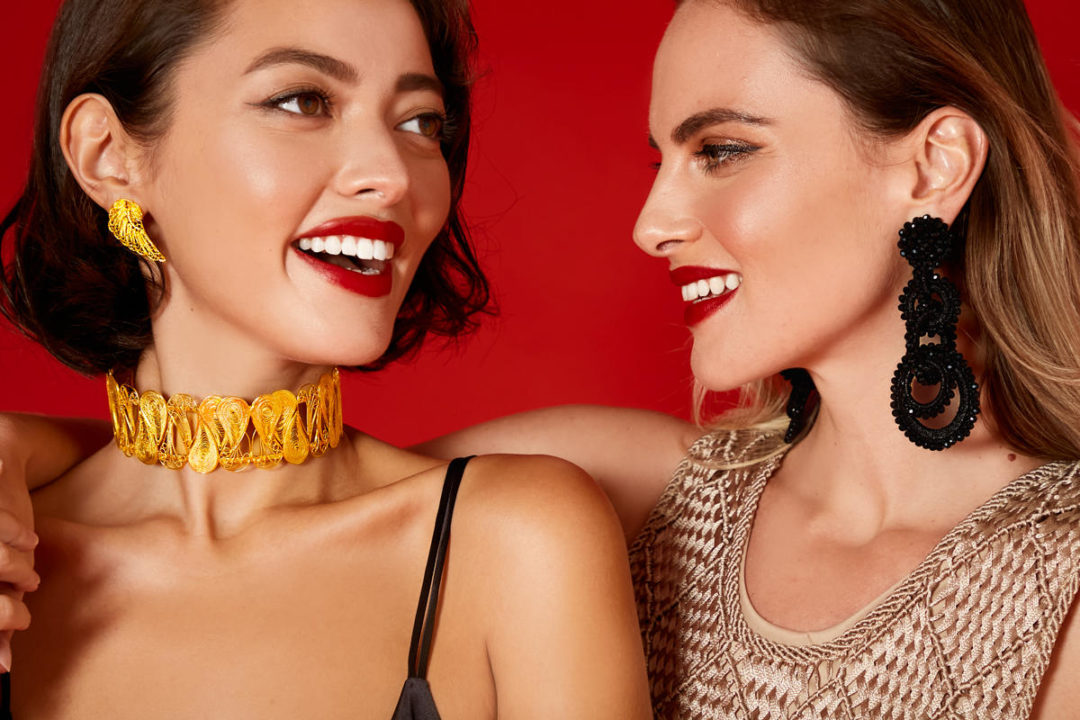In Collaboration With Vipop
Lenia Pérez is a collector of sorts, visiting fashion expos throughout South and Central America searching for resort wear designers to sell under sustainable fashion brand Vipop that she thinks Asian consumers will connect with. Now, her and Co-founder Fabiana González’s online store is also speaking to shoppers in Europe and the USA. Lenia has loved fashion and handmaking things since a young age, with artisan parents. And with its ancient sustainable weaving and dyeing techniques, clothes made by Latin American designers seemed to make sense for a market in which ethical awareness is becoming more important. We sat down with Lenia to talk about how Vipop was born and where she sees the brand growing.
#1. Can you tell us a bit about yourself and your background?
I’m a fashion designer, personal shopper, and stylist. I’m from Venezuela with parents who both work with handcraftsmanship. I’ve been in this creative world since I was little, playing with painting and doing things with my hands. I came from New York, Miami, Rio de Janeiro, seeing all the fashion around the world and I’m here now in Hong Kong.
#2. Can you introduce Vipop to people who don’t know the brand?
Vipop brings together a community of international designers making hot bags, jewelry, and clothing in unique designs like the ones I’m wearing. At the same time, designers take care of the ethical or eco-friendly values behind the pieces and we also take care of the value of each piece. So it’s this community we’re building in the new fashion industry. We’re offering new ways to be sustainable. It’s not just “sustainable”, it can be very fun too.
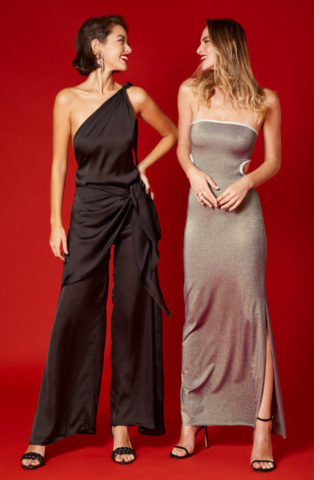

#3. How would you define sustainable fashion and why did you choose this focus for Vipop?
I feel it’s very important to put attention to how the pieces we buy are actually made, who is making them and how it affects our environment, the community around us, and the planet. This subject is very important today because we can see so much damage in the world from the fashion industry. This is something very special for me and all the team, and this is why we selected this subject to build a fashion brand and e-commerce platform.
#4. What are the strengths of having an all-female team?
I love it because women feel everything. We’re very creative and detailed. You can notice when you enter our shop, you can see all the details, colours, pieces made by hand in our collection. This is something amazing about females.
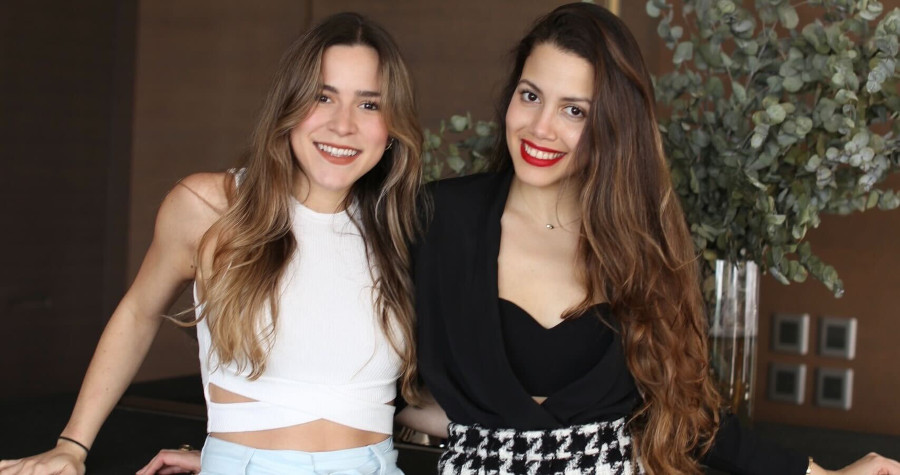
#5. How do you see the sustainable fashion market in Asia?
I think it’s something more and more people are feeling interested in building. In the last two years, it’s grown faster than before. The new generation is very interested in ethical and environmentally-conscious fashion, and I think it’s obvious why. I’m excited to see it continue to grow in the Asian market.
#6. What makes Latin American fashion a good medium for conscious fashion?
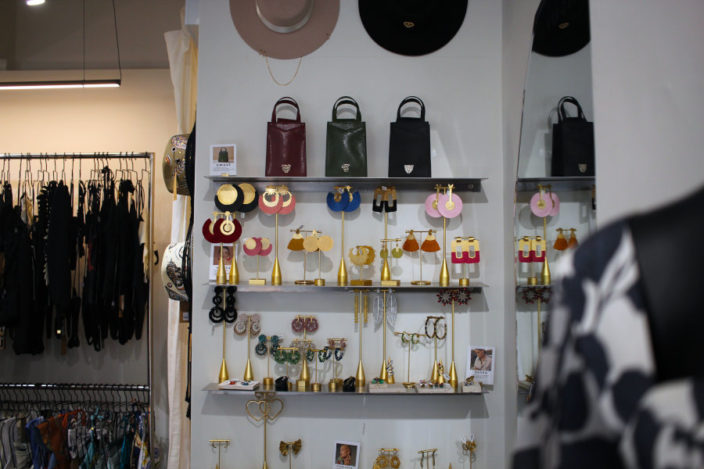
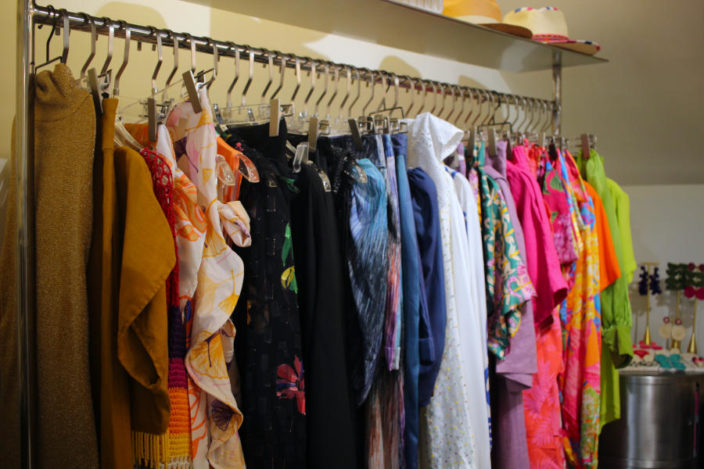
Latin America has many small communities with artisans and indigenous people, and we’re still very close to this culture. We put the Latin American culture into the designs because we don’t want to let it go away. This culture has been around for many, many years and now we are bringing it to 2022. Latin American designers bring all these [eco-friendly] techniques to this generation, which we balance with sustainability by helping these small communities while incorporating the culture and learning what our people used to do in the past.
I get the sense that these Latin American brands are not always trying to be sustainable necessarily, that they naturally do it because they’re learning from their ancestors.
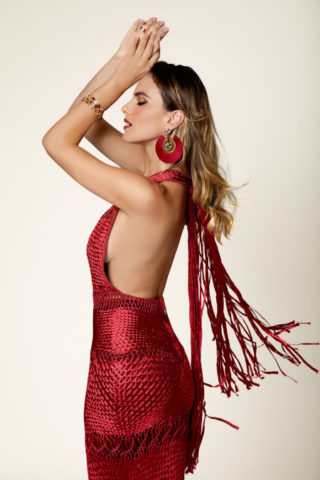
Exactly, yes. Our ancestors already worked in sustainable ways. Some of the brands we work with help small communities of women that don’t have jobs and are too old to study. It’s difficult – it’s a circle. The designers help these people to continue using sustainable artisanal techniques that are rarely being used now.
Another aspect of ancestral methods is the materials. For example, some designers use palm tree [for packaging], we don’t use plastic, and so on. These techniques are naturally sustainable. [With us as a brand,] the important thing is to be conscious about how you make yourself proud of what you are doing. There are many aspects around ethical fashion.
#7. Can you tell us about the sourcing process? How do you make sure the designers you work with are sustainable?
We visit popular fashion expos in Latin America, Colombia, Brazil, Ecuador, Venezuela, and Miami. When we see designers we love, we start to check materials they use, who they work with, the process. Then, sometimes we visit them to learn how they work. But of course, we had a period in Hong Kong that we couldn’t travel so the designers sent videos to prove [their sustainability process]. But we already know the signs of when something affects the environment or not. For example, which kind of materials are good to use.
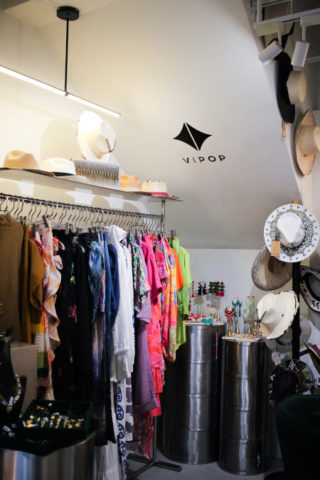
We try to look for the fashion brands that are the best for the environment, but each designer does their best in the way they can. Some waste water, but they work with recycled materials. They try to find another way to improve their production. For example, we have one swimwear brand that paints everything by hand and recycle all the water, which is amazing. Others use materials that cannot be recycled, so they make art from all the leftover fabric.
We have one designer that only employs single moms in their factory. So maybe some brands cannot change many things in the materials they use, but they try to help minority communities.
Another [eco fashion brand] makes bags from pineapple and cactus leather, and also does anti-animal cruelty campaigns. Each brand we collaborate with is different and while it’s difficult to be 100% sustainable, they try to have a balance. There are some things we have to accept, but then we do other things to help. This is the point.
#8. How do you help the designers have that sustainability balance in their process?
We work with designers to understand what [environmental or human rights aspect] they want to contribute to. Some have a connection with helping vulnerable women, some to clean beaches. How we help them is we give them marketing information so they don’t waste [time and materials] to make clothes that people don’t like, which creates more waste like fast fashion. Of course, we give some tips about environmental initiatives in Hong Kong, but they select the way they want to help because it’s very personal to each designer.
#9. Can you tell us about VIPOP’s concept store, ARTEZANO?
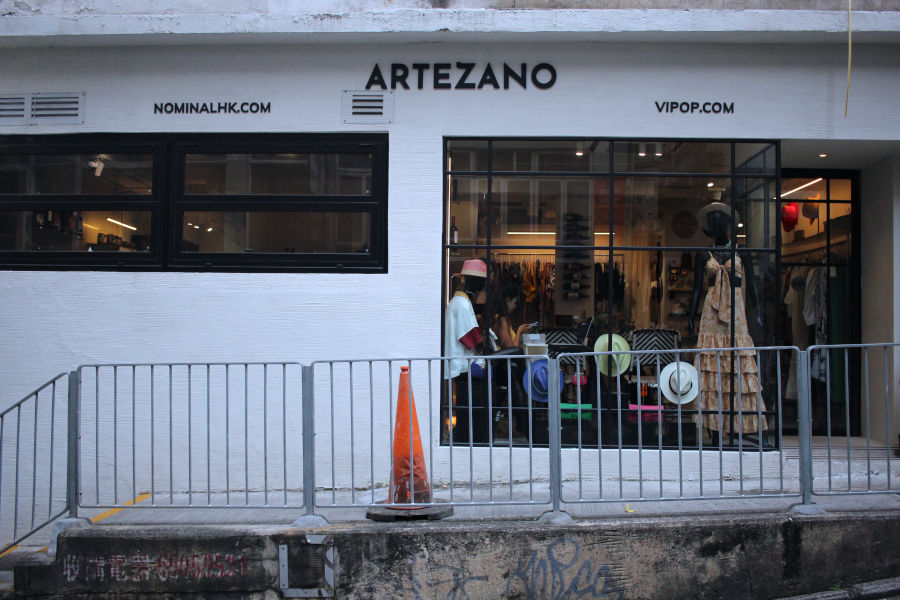
We want people to sit down in the café and slowly learn more about sustainable fashion. We try to make the whole experience with clothing, jewelry, and food from small farmers [Editor’s note: Half of ARTEZANO is Nominal, a Middle Eastern gourmet grocery]. From the moment you pause to eat something, you can also see the apparel.
We’re bringing this to Hong Kong to understand, through the food we eat and the money we spend: What is going on around us? What is this new life that is more conscious?
Sustainability doesn’t have to mean boring or bad style – we can dress great, but with more attention. What we say is, “Sustainable is the new black”. We want people to sit down here, enjoy, and feel all this to see if they want to be a part of the ‘new black’ movement.
You’re creating a space for people to sit down and talk about sustainability in general, not just in terms of clothing.
Maybe you don’t buy anything, but you have a nice coffee and learn a little bit about our slow fashion designers’ work. We want to provide this information so that Hong Kong people can see the value of the things they spend money on, whether it’s fashion or food. We [have the potential] to affect the environment or animals just by buying something, so it’s nice when we can be a little bit conscious.
Find Vipop online or in-person at ARTEZANO, 52-54 Graham Street, Soho, Hong Kong (+852 3489 2770).
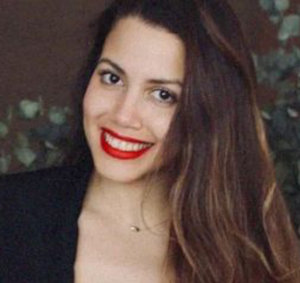
Lenia Pérez is the Founder and Director of Hong Kong-based sustainable fashion boutique Vipop. She and Co-Founder Fabiana Gonzalez started the brand in 2018, which works with international artisans especially in South and Central America creating ethical clothing. The daughter of two artisans who instilled a love for craftsmanship and design in her, Lenia is the designer of her namesake fashion label, Lenia.
Disclaimer: This interview has been edited and condensed for readability.
Header image credits: Vipop


